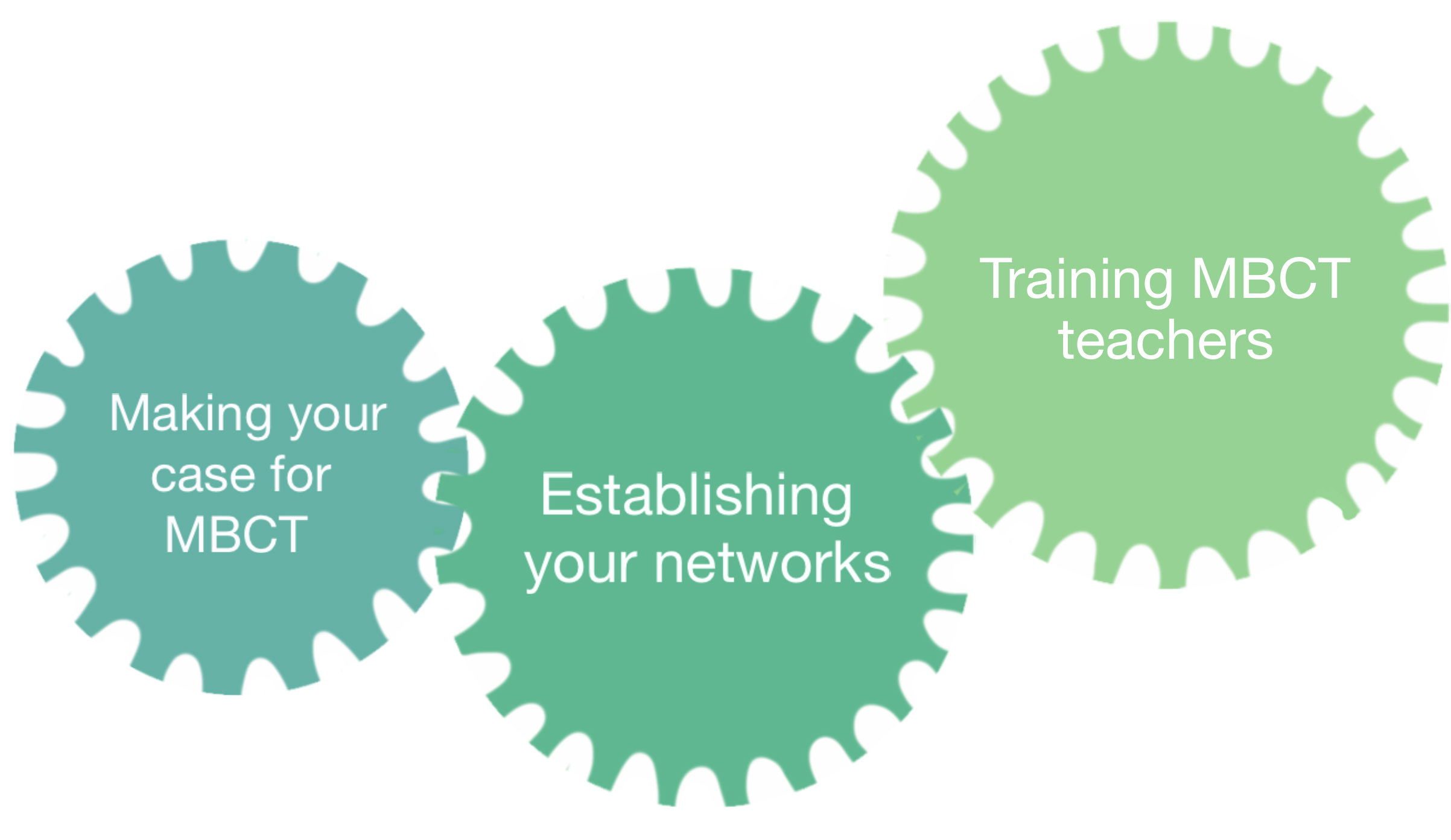Starting your implementation journey

Making the case
MBCT is not an intervention that provides ‘a quick fix’ and as such, in many cases it was perceived to be at odds with the pace and pressure of current health services. MBCT also aligns with a model of care that places people as active agents in their own recovery and promotes mental health and well-being, rather than a medical model. Therefore implementers have expressed that in a competitive environment such as the NHS you will need to ‘make a case’ for MBCT through a variety of activities.
You will first need to introduce MBCT into your setting. One of the key ways of doing this is through ‘taster sessions’ and giving people the opportunity to see the value through experiencing it.
You will need to highlight the evidence around MBCT and highlight the benefits to your service and make MBCT fit the needs/priorities of your service.
Here are some resources to help you make the case for MBCT.
Establishing your networks

You will need to seek out and/or establish a network of multiple stakeholders in order to strengthen your support system and access resources.
These could be a range of formal and informal networks of various types such as virtual networks locally, regionally and nationally which could provide a platform for sharing ideas, learn, find solutions and draw on/share expertise.
Start small by building local relationships with colleagues and managers before establishing wider links such as networking with external regional and national implementers, training and supervision networks and research and development networks.
Here are some resources to help you establish your networks
Training MBCT teachers
One of the most substantive facilitators is good pathways to train MBCT teachers and then ongoing supervision and CPD. The format of training pathways can vary in different settings, but having a strong training and supervision pathway will inevitably help move towards a sustainable service.
The characteristics of training and supervision pathways across the ASPIRE case studies are summarised here.
It is perhaps self-evident, but for any psychological therapy to be implemented sustainably it must provide a training pathway for practitioners who can deliver the intervention competently and in time go on to supervise and train others to do so.
Follow this link for further training resources.

